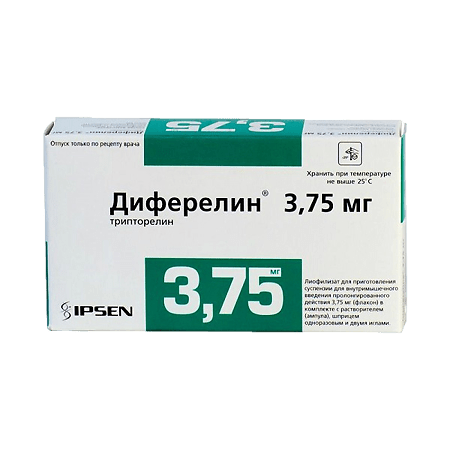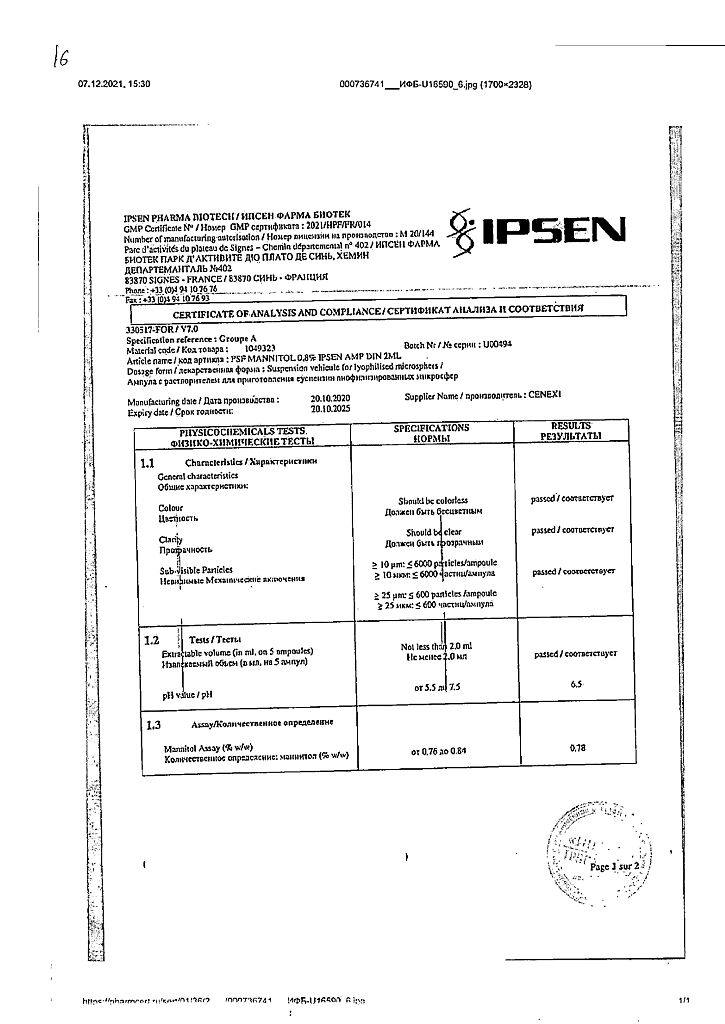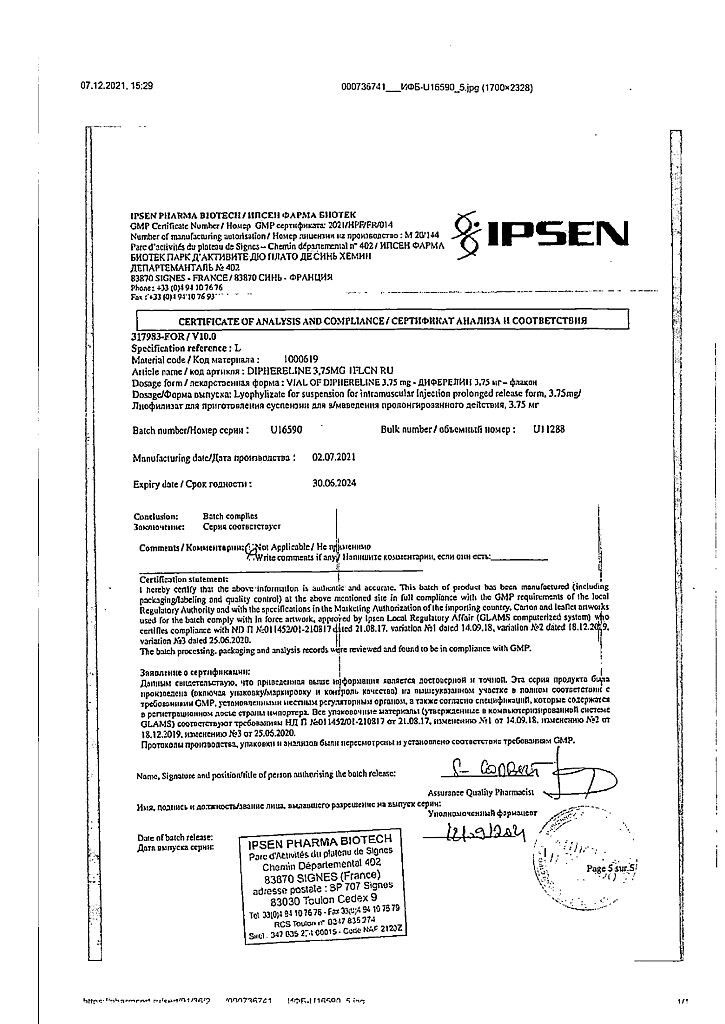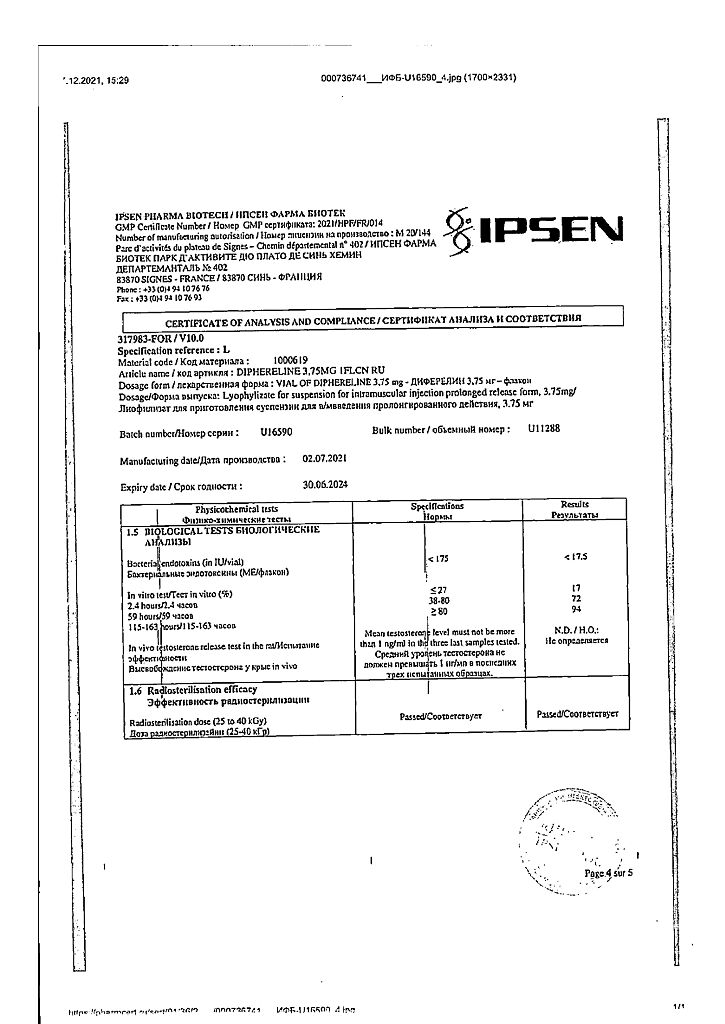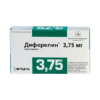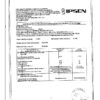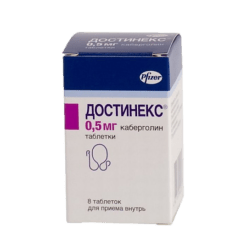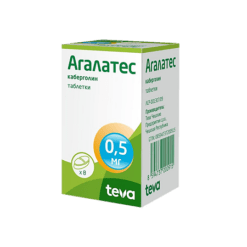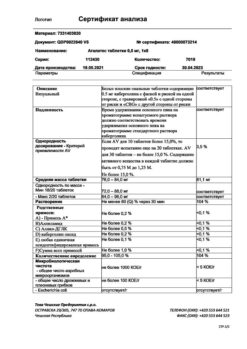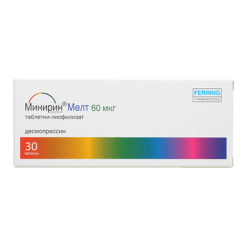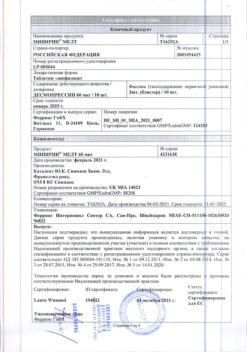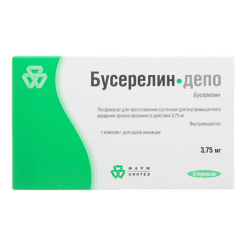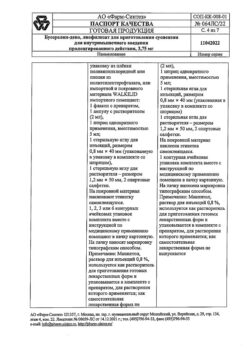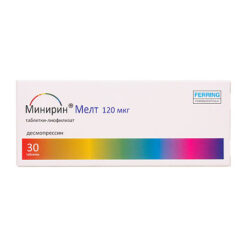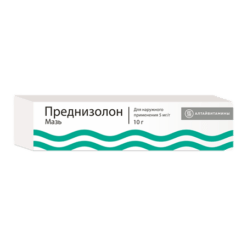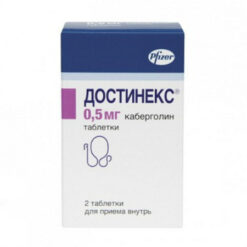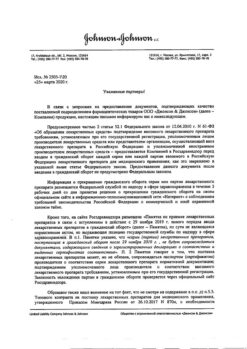No products in the cart.
Differelin, lyophilizate 3.75mg
€150.21 €125.18
Description
Pharmacodynamics
A synthetic decapeptide analog of natural GnRH. Differelin®, after a short initial period of stimulation of the gonadotropic function of the pituitary gland, has an inhibitory effect on gonadotropin secretion with subsequent suppression of testicular and ovarian function.
Continued use of Dyferelin® inhibits ovarian estrogen secretion to the menopausal state and also reduces testosterone secretion, which concentrations can reach levels that can be seen after surgical castration.
Pharmacokinetics
Absorption and distribution
After the administration of the suspension, there is an initial phase of rapid release of the active substance followed by a phase of sustained release. The Cmax of tryptorelin in plasma is 0.32±0.12 ng/mL, and the average amount of permanently released tryptorelin is 46.6±7.1 µg/day.
The bioavailability of the drug when administered once a month is 53%.
Indications
Indications
Prostate cancer; genital and extragenital endometriosis; premature puberty; female infertility (in the in vitro fertilization program); uterine fibroids (before surgery).
Pharmacological effect
Pharmacological effect
Pharmacodynamics
Synthetic decapeptide, analogue of natural GnRH. Diferelin®, after a short initial period of stimulation of the gonadotropic function of the pituitary gland, has an inhibitory effect on the secretion of gonadotropin with subsequent suppression of testicular and ovarian function.
Chronic use of the drug Diferelin® inhibits the secretion of estrogen by the ovaries until menopause, and also reduces the secretion of testosterone, the concentrations of which can reach levels observed after surgical castration.
Pharmacokinetics
Suction and distribution
After intramuscular administration of the suspension, an initial phase of rapid release of the active substance occurs, followed by a phase of continuous release. In this case, the Cmax of triptorelin in blood plasma is 0.32±0.12 ng/ml, and the average amount of constantly released triptorelin is 46.6±7.1 μg/day.
The bioavailability of the drug when administered once a month is 53%.
Special instructions
Special instructions
At the beginning of treatment, clinical symptoms may intensify, and therefore Diferelin® should be prescribed with caution to patients with prostate cancer who are at risk of developing ureteral obstruction or spinal cord compression. Careful medical supervision of these patients is necessary during the first month of therapy.
Before starting Diferelin therapy, it is necessary to confirm the absence of pregnancy.
The drug should be used with caution in patients with polycystic ovary syndrome during ovulation stimulation regimens. This is due to the fact that in a small number of patients the number of induced follicles may increase.
It is necessary to carefully monitor the level of cycle stimulation during in vitro fertilization to identify patients at risk of developing ovarian hyperstimulation syndrome, since the severity and frequency of manifestations of the syndrome may depend on the gonadotropin dosage regimen. If necessary, administration of human chorionic gonadotropin should be discontinued.
Impact on the ability to drive vehicles and other mechanisms that require increased concentration
No information available.
Active ingredient
Active ingredient
Triptorelin
Composition
Composition
1 bottle contains:
Active substance:
triptorelin acetate, equivalent to triptorelin 3.75 mg*
* – taking into account the characteristics of the dosage form, the drug contains an excess of the active substance to ensure the administration of an effective dose.
Excipients:
copolymer of D,L-lactic and glycolic acids – about 160 mg (the amount depends on the level of encapsulation),
mannitol – 85 mg,
carmellose sodium – 30 mg,
polysorbate 80 – 2 mg.
Solvent:
mannitol – 16 mg,
d/i water – up to 2000 mg.
Pregnancy
Pregnancy
Diferelin® is contraindicated for use during pregnancy and lactation (breastfeeding).
Contraindications
Contraindications
Pregnancy;
lactation period (breastfeeding);
hypersensitivity to triptorelin, other components of the drug and other GnRH analogues.
With caution: the drug should be prescribed for osteoporosis.
Side Effects
Side Effects
Allergic reactions: urticaria, rash, itching; very rarely – Quincke’s edema. From the reproductive system: in men – decreased potency; in women – headache, depression, sweating and changes in libido, dryness of the vaginal mucosa, dyspareunia and changes in the size of the mammary glands.
When used in combination with gonadotropins, cases of ovarian hyperstimulation syndrome have been reported. When treating precocious puberty, girls may experience bloody vaginal discharge. Long-term use of the drug may cause hypogonadotropic amenorrhea.
From the musculoskeletal system: with long-term use – bone demineralization, which is a risk of developing osteoporosis. At the beginning of treatment for prostate cancer, patients may experience a temporary increase in pain in the bones affected by metastases (treatment is symptomatic). There have been isolated cases of ureteral obstruction and the appearance of symptoms associated with compression by spinal cord metastases (they disappear in 1-2 weeks). Also during this period, a temporary increase in the activity of acid phosphatase in the blood plasma may be observed.
From the digestive system: in isolated cases – nausea, vomiting.
From the side of the central nervous system: in isolated cases – increased emotional lability, visual impairment.
From the cardiovascular system: in isolated cases – arterial hypertension, feeling of hot flashes.
Local reactions: in isolated cases – pain at the injection site.
Other: in isolated cases – increase in body weight, increase in body temperature.
Interaction
Interaction
Drug interactions with Diferelin® have not been described.
Overdose
Overdose
To date, no cases of overdose of Diferelin® have been reported.
Storage conditions
Storage conditions
At a temperature not exceeding 25 °C
Shelf life
Shelf life
2 years
Manufacturer
Manufacturer
Ipsen Pharma, France
Additional information
| Shelf life | 2 years |
|---|---|
| Conditions of storage | At a temperature not exceeding 25 °C |
| Manufacturer | Ipsen Pharma, France |
| Medication form | lyophilizate |
| Brand | Ipsen Pharma |
Related products
Buy Differelin, lyophilizate 3.75mg with delivery to USA, UK, Europe and over 120 other countries.

